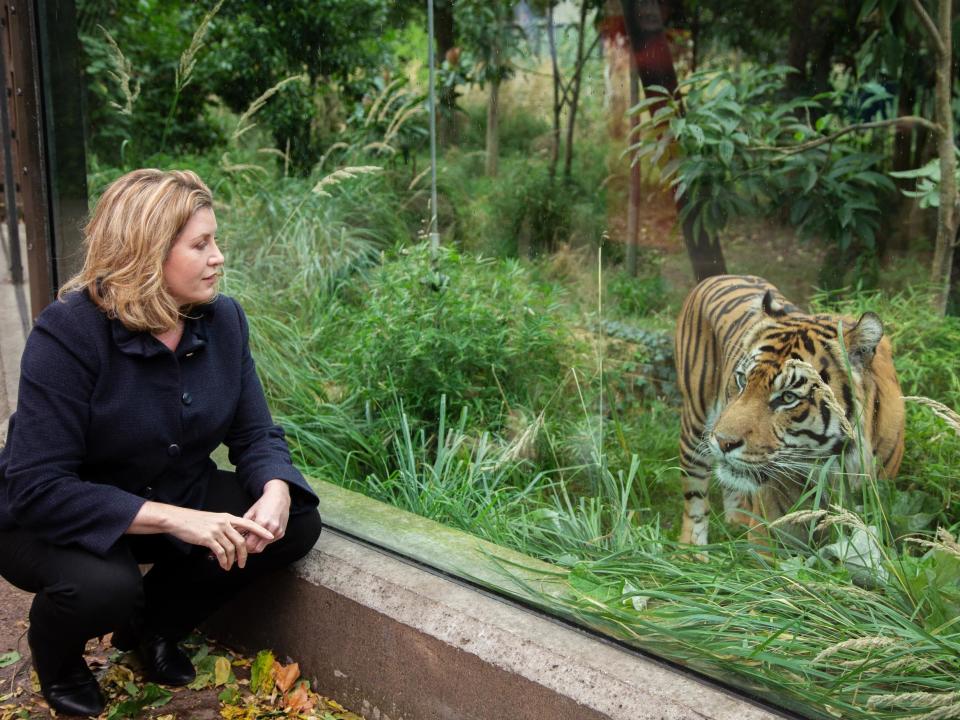Government pledges £2m in aid spending to help save Sumatran tiger and other endangered species
The government has unveiled new plans to help save endangered species such as the orangutan and the Sumatran tiger.
Penny Mordaunt, the international development secretary, said £2.1m of UK aid would be spent on helping to protect wildlife in Indonesia and Liberia.
It will be used to help give people living near to endangered species a financial alternative to clearing forests and hunting animals, including by setting up sustainable rubber and cocoa farms.
In Indonesia, 16,000 jobs will be created for people who live and work in areas that are home to the Sumatran tiger, the orangutan and the Asian elephant.
In Liberia, the Department for International Development (DfID) will work with local partners to help preserve the habitat of the West African chimpanzee.
Ms Mordaunt made the announcement during a visit to London Zoo, ahead of the Illegal Wildlife Trade Conference in London next month.
The money will be distributed through the Partnerships for Forests programme, which aims to give people living near to endangered species an economic alternative to poaching and deforestation.
In total, the UK gives £56.5m to the programme.
Ms Mordaunt said: “The illegal wildlife trade and the destruction of forests and natural habitats are having a catastrophic impact on both iconic wildlife and the world’s poorest people.
“Nobody wants to see extraordinary species become extinct, or the communities living near their habitats struggle for jobs and livelihoods, which is why UK aid has a unique role to play in tackling the underlying causes driving these problems, namely poverty and rapid, unmanaged deforestation.
“It’s only by working together with local communities that we will preserve endangered wildlife like the Sumatran tiger, and protect them for future generations.”
The funding for Indonesia will go to projects in the Bukit Tigapuluh Landscape, which is home to between 30 and 40 of the world's remaining 400 Sumatran tigers. DfID will work with 28 organisations, including charities, local government and private companies, to help create jobs for local people, including in the production of environmentally-friendly rubber and honey.
In Liberia, the investment will help organisations, including the Royal Society for the Protection of Birds (RSPB), that are working to preserve habitats in the Gola rainforest. The work will involve establishing sustainable cocoa farming to encourage local people to turn away from hunting and deforestation.
DfID said illegal poaching is often carried out by poor villagers who are looking for extra income. Giving them an alternative is seen as one of the most effective ways to protect endangered species.
Tanya Steele, chief executive of the World Wildlife Fund (WWF) said: “We don’t have to choose between helping people and saving our wildlife.
“Projects like this show UK aid can be used to help the world’s poorest people and save some of our most threatened species, like the Sumatran tiger and Sumatran elephant."

 Yahoo News
Yahoo News 
